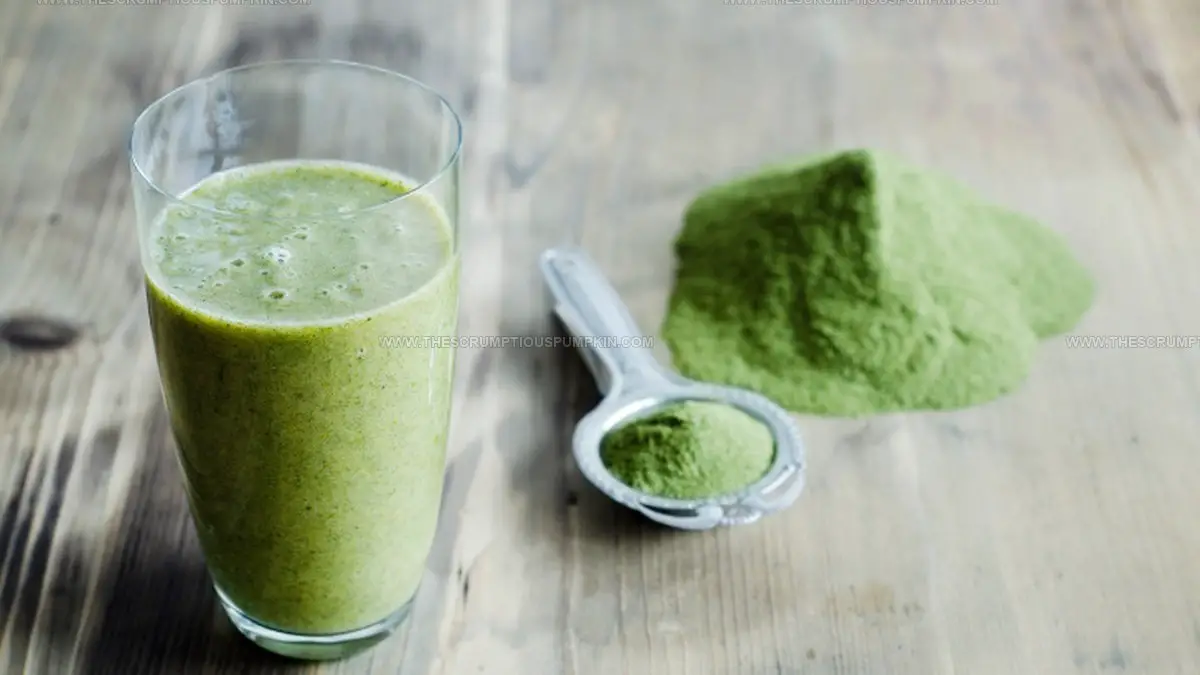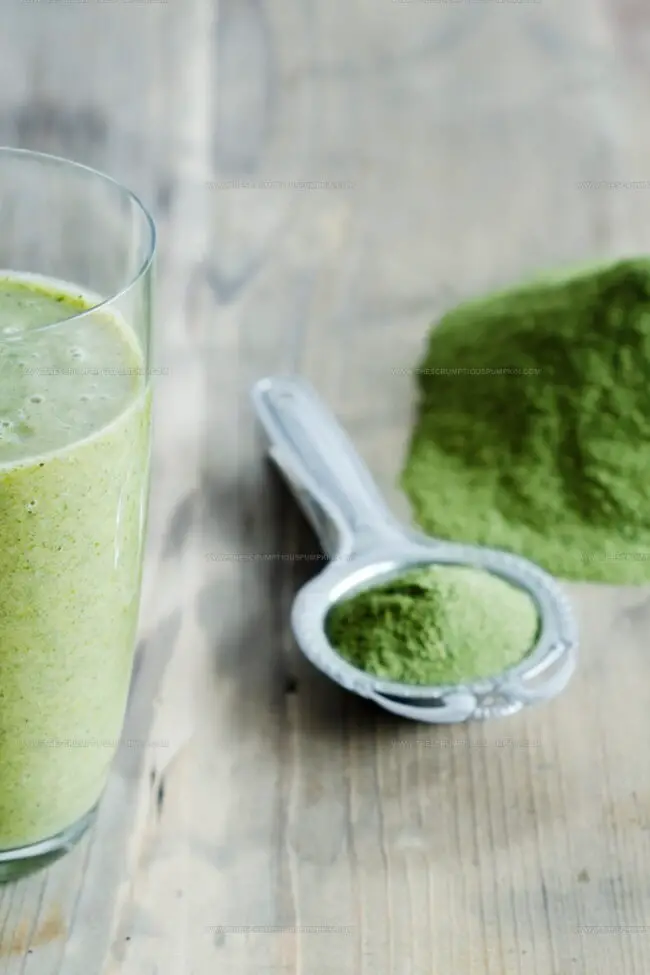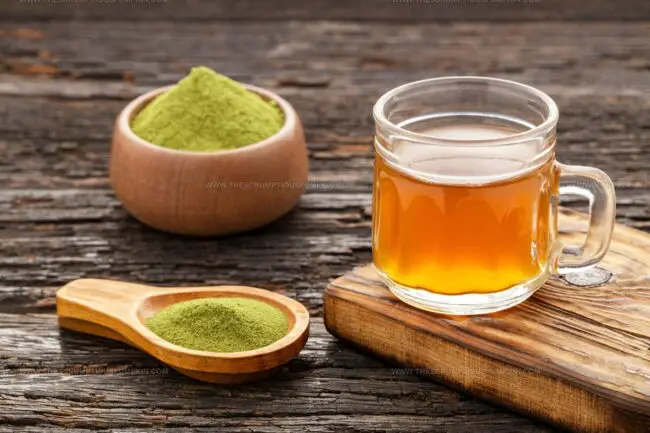What Does Moringa Taste Like? Green Tea Meets Spinach!
Moringa, a nutrient-packed superfood, has been gaining significant attention in health and wellness circles worldwide.
This remarkable plant offers more than just nutritional benefits that might surprise you.
Countless people wonder about its flavor profile and culinary potential before incorporating it into their diet.
Rumors and mixed experiences circulate about how this green powerhouse actually tastes on the palate.
Skeptical individuals often hesitate to try new health supplements without understanding their sensory characteristics.
Nutritionists and food enthusiasts have compelling insights about moringa's unique gustatory experience that could transform your perspective.
Your curiosity about its taste might just lead you to an exciting nutritional adventure that challenges conventional expectations.
Dive into this article to uncover the delicious secrets of moringa's flavor landscape.
Moringa: What Is It?
Moringa oleifera stands as a powerful plant originating from India, Pakistan, and African regions.
Locals know this tree by multiple names such as tree of life, miracle tree, drumstick tree, horseradish tree, and ben oil tree.
Certain global communities rely on moringa as an essential nutrition source due to its rich health benefits.
Moringa leaves and pods pack substantial amounts of protein, vitamins, minerals, and powerful antioxidants.
Nearly every section of this tree works as an edible resource, whether consumed fresh or dried, and serves well for medicinal applications.
The Taste of Moringa
Moringa carries a slightly bitter taste similar to spinach, asparagus, horseradish, and matcha.
Its bitterness isn't harsh or one-sided. Instead, this flavor blends with soft sweetness and earthy notes.
Moringa's taste changes based on which plant part you eat:- Moringa powder has an earthy character. Bitter food fans might find moringa challenging. Success comes from smart mixing and recipe tricks:Moringa’s Health Benefits
Moringa offers powerful health perks for those wanting natural wellness.
Health experts highlight several key benefits from this special plant.
Moringa supports stronger immune systems by helping body defenses work better.
Reducing body swelling becomes easier with regular moringa consumption.
Digestive health gets a welcome boost when people add this green powder to their diet.
Heart health improves through moringa's natural compounds that support blood vessel function.
Medical researchers have found interesting links between moringa and potential cancer prevention.
Blood sugar control seems more manageable with regular moringa intake.
Small daily amounts could make big differences in overall health and energy levels.
Strengthens Your Body’s Defenses
Moringa packs powerful antioxidants such as vitamin C, beta-carotene, and quercetin.
Research indicates these substances can support wellness and strengthen immune defenses.
Scientific work has also pointed to potential immune-enhancing qualities through studies on animal subjects.
More research with human participants remains necessary to validate these initial discoveries.
Eases Swelling
Healing roots from ancient wellness practices point to moringa as a powerful plant for fighting body swelling and pain.
Traditional medicine systems like Ayurveda have used this green wonder to help with problems such as joint aches, breathing troubles, and lung issues.
Special elements inside moringa work hard to calm down body reactions that cause discomfort.
Research shows certain natural chemicals in this plant battle harmful inflammation and stress inside our cells.
Small science checks reveal compounds like flavonoids and special acids that push back against body breakdown.
Moringa's vitamin C levels match those of oranges, giving another strong boost to reduce swelling and support overall health.
These natural ingredients work together like a smooth team, helping bodies fight back against uncomfortable physical reactions and supporting wellness from deep inside.
Helps Digest Food
Moringa supports better digestion through multiple ways.
Its high fiber content helps keep bowel movements regular and stops constipation from happening.
Special compounds in moringa kick-start digestive enzyme production, which breaks down food more effectively and helps you absorb more nutrients.
Moreover, moringa's ability to reduce inflammation in your digestive system can lower uncomfortable bloating and support smoother digestion.
Good For Your Heart
Moringa includes special chemicals such as quercetin and chlorogenic acid.
Research suggests these substances might support heart health by helping reduce blood pressure.
Scientists have found potential links between moringa and better cholesterol management, which could decrease dangerous plaque growth inside blood vessels.
Helps Fight Cancer
Moringa contains special plant compounds that can stop cancer cell growth and spreading.
Chemicals like flavonoids and phenolic acids work by blocking harmful molecules in the body.
These natural substances help clean up damage and lower swelling that could lead to cancer.
Researchers have found that specific ingredients such as quercetin, kaempferol, and niazimicin can block cancer cell development.
Scientists believe moringa's power to strengthen immune system responses might also help your body defend against dangerous cells.
Balances Blood Sugar
Moringa could help control blood sugar levels because of its rich fiber and chlorogenic acid.
Fiber works to slow down how quickly carbohydrates enter the body, while chlorogenic acid might assist in reducing sugar in the bloodstream.
Research indicates moringa extract can boost insulin production and enhance how well insulin works in the body, which adds more support to its potential as a natural method for managing blood sugar.
Adding Moringa to Your Meals
Moringa offers an exciting mix of flavor and wellness advantages.
Let's explore ways to add this powerful plant to daily meals.
Learning about moringa's impact on health might spark some interesting dietary choices.
Here are 10 methods for consuming moringa:
Fresh Leaves Form
Moringa leaves work perfectly in many meals.
Salads get a healthy boost when fresh leaves are mixed in.
Blend leaves into smoothies for an extra nutrition kick.
Sandwiches taste better with moringa greens tucked inside.
Wraps become more interesting with these delicate leaves.
Home cooks can add moringa to stews for deeper flavor.
Soups welcome these nutrient-packed greens easily.
Steaming moringa leaves brings out their mild taste.
Simple stir-frying creates another tasty way to enjoy them.
Mix the leaves with other vegetables for a quick side dish or light meal.
Ground Into Powder
Moringa leaves work great when ground into powder, adding rich flavor and extra nutrients to meals.
Brewed As Tea
Mix fresh moringa leaves or moringa powder with hot water to brew a soothing herbal drink without caffeine.
Extracted Oil
You can pick up moringa oil from health stores or shop online for different needs.
Some stores sell this oil for skincare treatments or hair health.
Websites like Amazon offer bottles perfect for kitchen cooking.
Moringa oil works well as a versatile product for personal wellness and meal preparation.
Roots
Moringa roots cook well when boiled and work nicely as a tasty vegetable side dish.
Seeds
Moringa seeds make a delicious and nutritious snack when roasted.
Spread seeds on a baking sheet, then pop them in the oven.
Roast at medium heat until they turn golden brown and crisp.
Salt or season with your favorite spices for extra flavor.
Enjoy these crunchy seeds as a quick and wholesome treat packed with nutrients.
Flowers
Moringa blossoms work well in salads or when steeped as a tasty drink.
You can enjoy these delicate flowers as a fresh ingredient that adds unique flavor to your meal or beverage.
Capsules
If moringa doesn't taste good or local stores don't carry it, supplements work well.
Shops like Amazon sell many moringa capsules easily.
Is Bitter Moringa Better?
Moringa grows naturally in regions near high mountain areas of India, Pakistan, Bangladesh, and Afghanistan.
Medical experts recognize this plant as a key ingredient for healing treatments in countries with limited healthcare resources.
Western health circles now see moringa as an exciting wellness solution because scientific research connects it with multiple positive health outcomes.
Medical professionals recommend consuming moringa through several simple methods like fresh leaves, powdered supplements, capsule forms, herbal teas, or pressed plant oils.
Moringa Common Questions
1. Why should I add moringa to my diet?
Moringa comes loaded with tons of important nutrients.
This plant offers high levels of vitamins A and C, calcium, potassium, and protein.
It contains eight key amino acids and several strong antioxidants.
2. What is the taste of moringa?
Moringa has a fresh, earthy flavor similar to spinach or matcha green tea.
Its taste runs slightly bitter, but mixing it with other foods or drinks can make it more pleasant.
3. What are the potential health benefits of moringa?
Scientists have studied moringa for many wellness advantages.
Benefits include fighting inflammation, protecting heart health, strengthening immune systems, supporting digestive wellness, and possibly improving mental focus and energy.
4. How can I include moringa in my diet?
Moringa comes in several forms:
You can blend the powder into smoothies, stir it into soups, or brew it as a warm drink.
5. Are there any side effects of consuming Moringa?
Moringa generally works well for most folks.
Start with small amounts to see how your body responds.
It acts as a diuretic, so watch out if dehydration worries you.
Medical advice is smart before beginning any new supplement.
6. Can I eat too much Moringa?
Overdoing moringa might cause stomach troubles or heartburn.
Large doses of vitamin A can become toxic, so moderation matters.
7. Can I grow moringa at home?
Moringa loves warm spots with lots of sunshine.
It adapts to different soil types and needs little water.
Matching climates make home growing possible.
8. Can I cook with moringa?
Moringa works great in many recipes:
9. How does moringa compare as a superfood to spirulina?
Spirulina is a blue-green algae packed with nutrients.
While spirulina has more protein, moringa wins on antioxidant content.




Mia Thompson
Pastry Chef & Content Creator
Expertise
Education
Portland Community College – Baking and Pastry Arts Program
Specialized in artisanal bread, seasonal desserts, and sustainable baking methods.
National University of Natural Medicine – Bachelor of Science in Nutrition (BScN)
Focused on “Food as Medicine” philosophy, with core threads in nutrition.
Mia’s love affair with baking began in her grandmother’s kitchen, where sneaking spoonfuls of batter first sparked her curiosity. She refined her skills through Portland Community College’s Baking and Pastry Arts Program and her expertise at the National University of Natural Medicine, earning a B.Sc. in Nutrition.
At The Scrumptious Pumpkin, Mia reimagines classics with effortless seasonal treats, healthier twists on old favorites, and playful confections that feel like pure joy. Beyond the oven, she nurtures her urban garden, forages local ingredients around Portland, and leads hands‑on nutrition workshops for her community.